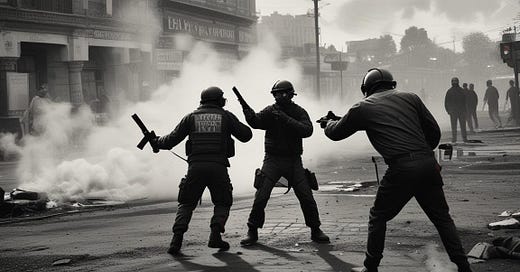Gunshots in America: A politics of violence
An expert brings order to the debate. And a novel on a country's collective trauma
Welcome to This Week, Those Books, your rundown on books new and old that resonate with the week’s big news story.
🎧 Would you rather listen? The podcast drops at the w/e.
In our second year, a big thank you to our community of more than 10,000 subscribers in 114 countries.
– Rashmee
Keep reading with a 7-day free trial
Subscribe to This Week, Those Books to keep reading this post and get 7 days of free access to the full post archives.





